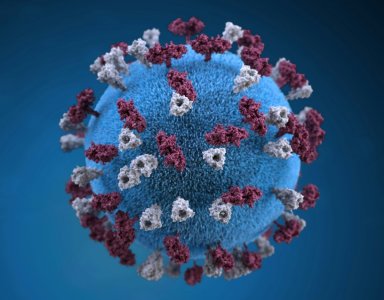Renewed health alert issued for Sydney and Melbourne over potential measles outbreak
- Replies 12
Measles, which many consider a pain of the past due to widespread vaccination, is still making its presence felt in the contemporary urban landscape.
With international travel, population density, and vaccine hesitancy contributing to its resurgence, measles remains a disease we cannot afford to ignore.
A new health alert puts this disease again in the spotlight.
NSW Health sounded the alarm for a potential measles outbreak that could affect residents and visitors of Sydney and Melbourne after a Victorian adult with measles travelled interstate.
This recent event rekindled old fears concerning the highly contagious disease in the two major cities.

If you were in the vicinity of specific locations on February 27, 2024, it’s crucial to monitor your health closely for measles symptoms.
The individual in question navigated through both Sydney Domestic Airport and the Sydney CBD, including several journeys on public transport, potentially leaving a trail of the measles virus in their wake.
Key exposure sites included the following:
Dr Vicky Sheppeard, Director of the South Eastern Sydney Local Health District Public Health Unit, explained that measles symptoms typically include fever, a runny nose, sore eyes, and a cough.
After three or four days, these symptoms are usually succeeded by a red, blotchy rash that starts from the head and spreads across the body.
‘Measles is a vaccine-preventable disease that is spread through the air when someone who is infectious coughs or sneezes. The virus can stay in the air and infect others up to half an hour after the infectious person leaves a room,’ Dr Sheppeard said.
‘Symptoms may appear between seven and 18 days after an exposure, so it’s important for people to stay vigilant if they’ve been exposed, and if they develop symptoms, to please call ahead to their GP or emergency department to ensure they do not spend time in the waiting room with other patients,’ she added.
Dr Sheppeard also emphasised that the recent outbreak should prompt Australians to ensure they are immunised against the highly contagious disease.
‘Anyone born during or after 1966 needs to ensure they have received two doses of measles vaccine. This is particularly important prior to overseas travel, as measles outbreaks are occurring in several regions of the world at the moment,’ Dr Sheppeard urged.
The measles-mumps-rubella (MMR) vaccine is part of the National Immunisation Program for children at 12 and 18 months, and it's free for individuals born in 1966 or later who haven't had two doses.
It's accessible at all GP clinics for all age groups and at pharmacies for those over five years old.
This case follows two similar incidents of individuals, confirmed to have measles, who travelled to Melbourne and Murwillumbah.
NSW Health urged anyone experiencing measles symptoms to contact their GP or Healthdirect at 1800 022 222.
This recent alert calls for a collective responsibility to protect the vulnerable, including infants, the elderly, and immunocompromised individuals.
By staying informed and proactive in healthcare practices, such as vaccination and symptom monitoring, we safeguard not only ourselves but our community as a whole.
 Have you encountered measles-related issues recently? Do you recall managing the risks in past decades? Share your experiences and insights in the comments below.
Have you encountered measles-related issues recently? Do you recall managing the risks in past decades? Share your experiences and insights in the comments below.
With international travel, population density, and vaccine hesitancy contributing to its resurgence, measles remains a disease we cannot afford to ignore.
A new health alert puts this disease again in the spotlight.
NSW Health sounded the alarm for a potential measles outbreak that could affect residents and visitors of Sydney and Melbourne after a Victorian adult with measles travelled interstate.
This recent event rekindled old fears concerning the highly contagious disease in the two major cities.

NSW Health issued a warning to Sydney and Melbourne citizens after a traveller, confirmed to have measles, went to several locations in Sydney. Credits: Unsplash
If you were in the vicinity of specific locations on February 27, 2024, it’s crucial to monitor your health closely for measles symptoms.
The individual in question navigated through both Sydney Domestic Airport and the Sydney CBD, including several journeys on public transport, potentially leaving a trail of the measles virus in their wake.
Key exposure sites included the following:
- Virgin flight VA815, departing Melbourne at 7:25 am on Tuesday, February 27, 2024, and arriving in Sydney at 8:53 am
- Sydney Domestic Airport Terminal 2 arrivals between 8.53 am and 9.30 am
- Domestic Airport Station from 9:00 am to 9:30 am
- T8 line 9:09 am train from Domestic Airport Station to Central Station
- T4 line 9:23 am train from Central arriving at Martin Place at 09:30 am
- Martin Place Station from 9:30 am to 10:00 am
- Toby’s Estate, 25 Martin Place (formerly the MLC Centre) between 10:00 am and 11:50 am
- Gateway Building, Alfred St, Circular Quay between 11:45 am and 4:30 pm, including the Food Court from 1:30 pm to 2:15 pm
- Deutsche Bank Place, 126 Phillip St, ground floor atrium from 4:00 pm to 5:00 pm
- Mordeo Bistro & Bar, 126 Phillip St from 4:30 pm to 5:30 pm
- St James Station between 5:00 pm and 5:30 pm
- T8 line 5:07 pm train from St James Station to Sydney Domestic Airport, Mascot
- Sydney Domestic Airport Terminal 3 departures, including food court, from 5:30 pm to 7:00 pm
- Qantas flight QF483, departing Sydney at 6:40 pm and arriving in Melbourne at 8:20 pm
Dr Vicky Sheppeard, Director of the South Eastern Sydney Local Health District Public Health Unit, explained that measles symptoms typically include fever, a runny nose, sore eyes, and a cough.
After three or four days, these symptoms are usually succeeded by a red, blotchy rash that starts from the head and spreads across the body.
‘Measles is a vaccine-preventable disease that is spread through the air when someone who is infectious coughs or sneezes. The virus can stay in the air and infect others up to half an hour after the infectious person leaves a room,’ Dr Sheppeard said.
‘Symptoms may appear between seven and 18 days after an exposure, so it’s important for people to stay vigilant if they’ve been exposed, and if they develop symptoms, to please call ahead to their GP or emergency department to ensure they do not spend time in the waiting room with other patients,’ she added.
Dr Sheppeard also emphasised that the recent outbreak should prompt Australians to ensure they are immunised against the highly contagious disease.
‘Anyone born during or after 1966 needs to ensure they have received two doses of measles vaccine. This is particularly important prior to overseas travel, as measles outbreaks are occurring in several regions of the world at the moment,’ Dr Sheppeard urged.
The measles-mumps-rubella (MMR) vaccine is part of the National Immunisation Program for children at 12 and 18 months, and it's free for individuals born in 1966 or later who haven't had two doses.
It's accessible at all GP clinics for all age groups and at pharmacies for those over five years old.
This case follows two similar incidents of individuals, confirmed to have measles, who travelled to Melbourne and Murwillumbah.
NSW Health urged anyone experiencing measles symptoms to contact their GP or Healthdirect at 1800 022 222.
This recent alert calls for a collective responsibility to protect the vulnerable, including infants, the elderly, and immunocompromised individuals.
By staying informed and proactive in healthcare practices, such as vaccination and symptom monitoring, we safeguard not only ourselves but our community as a whole.
Key Takeaways
- NSW Health issued a warning for Sydney and Melbourne residents to watch for measles symptoms following the movements of an infectious traveller.
- Exposure sites include several locations in Sydney, including the airport and various public transport services, as well as flights between Melbourne and Sydney.
- Symptoms of measles include fever, runny nose, sore eyes, a cough, and a red blotchy rash that appears a few days after the initial symptoms.
- Australians were reminded to ensure they are vaccinated with two doses of the measles vaccine, especially before travelling overseas, as there are current outbreaks in several regions.







